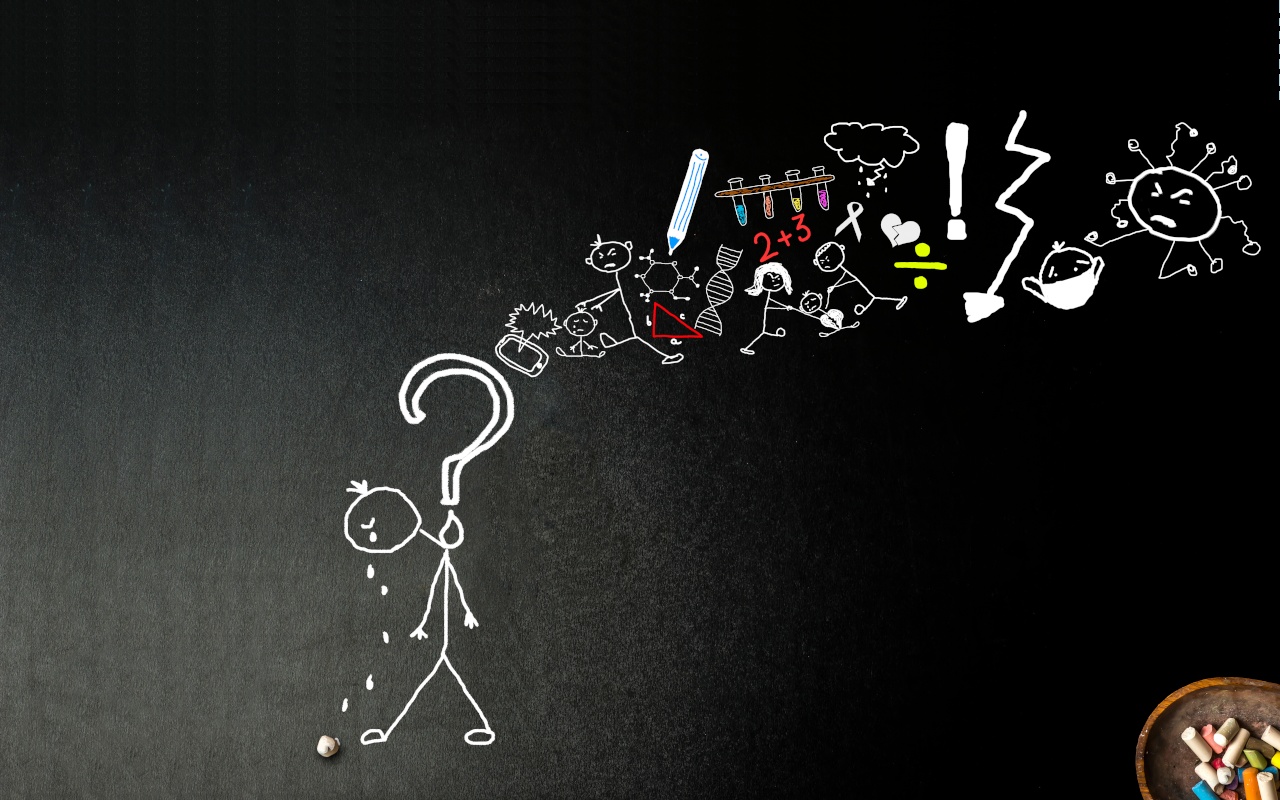
Content Warning: This blogpost mentions topics that may be sensitive to some readers. [Trauma, war, gun violence]
Are you prepared for the new school year?
Feeling anxious about going back to school this year or sending your kids? Your concerns are certainly valid, considering everything that has happened over the last few years. Not only from the pandemic, but racialized violence, insurgency on the Capitol, a barrage of gun violence, the invasion of Ukraine, rising inflation and associated costs of basic needs, and a seemingly never-ending list of related perils.
All of these are likely to have impacted you and your loved ones in ways you might not recognize. You and/or your children may feel unsafe because of these conditions we find ourselves in. This is especially true for children, teens, and young adults as their brains are still developing. These prolonged feelings regarding inadequate safety can impact social-emotional development and academic performance. Without feeling a sense of safety in everyday life, the more likely it is for a challenging mental health issue to develop.
What is trauma?
The circumstances we are in can also be a cause of trauma. The Substance Abuse and Mental Health Services Administration (SAMHSA) defines trauma as "an event, series of events, or circumstance resulting in physical, emotional, or life-threatening harm and has lasting adverse effects on the individual's mental, physical, emotional health, and social or spiritual well-being."
Trauma in Children
Trauma can present itself in children in many ways, including but not limited to:
- Excessive anger or irritability
- Unusual startle reactions
- Significantly increased or reduced appetite
- Exhaustion
- Aggression (physical or verbal)
- Regular tardiness/absence from class
- Perfectionist or controlling behavior
- Difficulty concentrating
- Frequent headaches or stomachaches
- Low self confidence
- Hoarding (snacks, school supplies)
- Risky behavior (substance use, unprotected sex)
- Panic attacks
- Extreme self-reliance or hyper-independence
- Running away
- Defiance
- Alienation from peers (self-isolation or inability to relate/make friends)
Source: Mental Health America's 2021 Back to School Outreach Toolkit
Tips to Prepare for School
To prepare to return to school, consider incorporating these practices into your everyday lives:
-
Increase sense of safety by focusing on things you can control, like hand-washing, social distancing, proper mask usage, and safety planning.
- Be open and honest about your own feelings. Try not to avoid them.
- Model empathy and active listening by making everyone feel heard and seen.
- Avoid dismissing concerns or telling others not to worry.
-
Increase calming, self-care activities.
- Maintain a stable routine.
- Exercise.
- Practice meditation and mindfulness. Did you know that the Library hosts meditation classes? Find them here: SJPL Health and Wellness Events.
- Eat nutritious meals.
- Plan fun or creative activities like singing, dancing, drawing, and of course — reading!
-
Connect with each other and community.
- Get involved here at the Library: volunteer, join a program, or just stop by a library location or a Community Resource Center.
- Dedicate time to connect with loved ones. Examples: write a letter, make a video, tell a story.
- Try to discover new things about each other. Ask questions, such as, "What's one thing I don't know about you?"
-
Foster hope and plan for the future.
- If you live with others, involve the whole household when solving issues. Establish goals, break the issue down to pieces, brainstorm solutions to negotiate pros and cons of each, and finally take small bite-size steps towards your goal.
- Consider these mantras:
- "We can tackle problems together."
- "We don't always have to be perfect, and are patient with ourselves in the process."
- Put pebbles or notes in a jar to mark when something good happens. Watch how quickly they add up!
- Make a gratitude list and share it
You are not alone.
We are all in this together. If you or a loved one are experiencing a crisis, please contact the Santa Clara County Mental Health Call Center at 800-704-0900.
If you would like to learn more about the library's resources or need assistance finding a community resource you need to achieve your goals, you can meet with a sensitively trained Library staff member who may be able to help you navigate the system. Call 650-383-8050 or email julianna.black@sjlibrary.org to get connected.
Booklists to Learn More
- SJPL Picks: Tough Topics - Loss and Grief (ages 0-5)
- SJPL Picks: Resources to Help Children Process Russia's Invasion of Ukraine (ages 5-11)
- SJPL Recommends: Resources for Helping Children in Grades 4-8 Process Community Violence or Personal Tragedy
- SJPL Recommends: Resources for Helping Children After Traumatic Events(ages 5-11)
- SJPL Recommends: Stories to Help Teens Process Gun Violence in their Communities
- SJPL Recommends: Resources for Healing After Traumatic Events(Adults)
Resources
- American Psychological Association. (2019, October 30). How to cope with traumatic stress.
- Lees, A. B. (2020, October 28). 7 tools for managing traumatic stress. National Alliance on Mental Illness.
- Mental Health America. (2021). Back to School Outreach Toolkit.
- To access en Español: De Vuelta a la Escuela 2021
- Substance Abuse and Mental Health Services Administration. (2021, November 8). Back to School During COVID-19.
- US Department of Veterans Affairs. (n.d.) Strategies for Families to Adapt to the Coronavirus (COVID-19) Pandemic. PTSD: National Center for PTSD.


Add a comment to: Back to School: Consider Trauma